#NKVD
Text

Tankies: as communists we sincerely believe that all human beings deserve to live a dignified life….
Also tankies: our favourite mass murderers didn't kill enough Polish people so let's exterminate the entire population of Poland….
#katyn#katyń#katyn massacre#katyń massacre#history#bad history take#tankie#clown#tankie clownland#keyboard warrior#useful idiot#ignorance is strength#second world war#world war 2#poland#polska#russia#belarus#ukraine#ussr#soviet union#nkvd#stalin#war crime#twitter#x
47 notes
·
View notes
Text
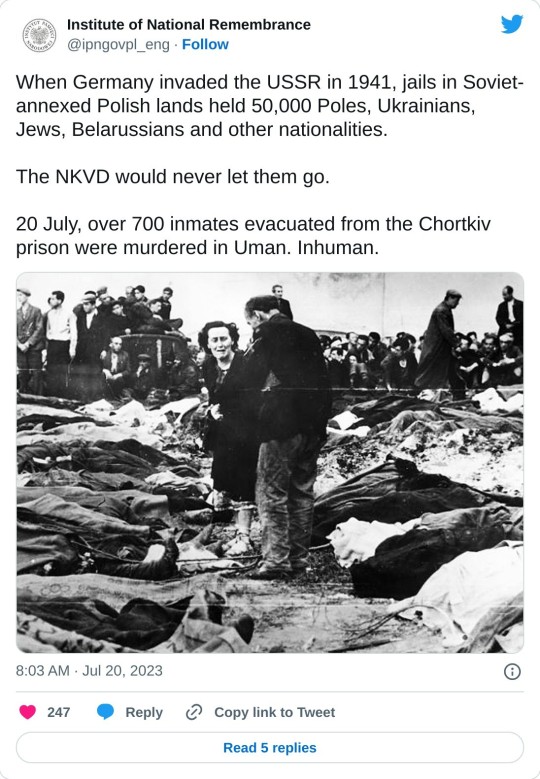
#stalinism#nkvd#soviet jails#Uman massacre#1941#soviet annexed polish lands#german invasion#russian imperialism#ukraine resistance#i stand with ukraine#slava ukraini#ukraine & poland
26 notes
·
View notes
Text
I have (very slowly) been translating the Soviet limited series “December 20” into English
It is about the founding of the Cheka, the Soviet secret police, in the immediate aftermath of the 1917 October Revolution
#socialism#communism#marxism#politics#soviet union#history#Cheka#Soviet#Dzerzhinsky#Lenin#Stalin#NKVD#october revolution#russian revolution
6 notes
·
View notes
Text
If you're a James Bond fan, the word SMERSH (СМЕРШ) may look familiar. If you're a little rusty with 007 lore, check this out.
SMERSH was Stalin's military counterintelligence agency which eventually became part of the KGB – the predecessor to Russia's FSB.
So Vladimir Putin, a former lieutenant colonel in the KGB, is reviving SMERSH.
Russia has revived SMERSH, a Stalin-era spy hunting organization, in parts of Ukraine that were illegally annexed and are partially under the control of Kremlin forces, a Russian politician and Kremlin propagandist announced Sunday.
Andrey Gurulyov, a Russian parliament (Duma) member and former military commander, made the remarks during an appearance on state television channel Russia-1, an excerpt of which was posted to his Telegram channel.
SMERSH, an acronym for the Russian words "death to spies"—"smert" meaning death and "shpionam" meaning spies—was the name of an organization formed by Soviet leader Josef Stalin. It was tasked with the elimination of anti-communist activity during World War II.
"We talked about SMERSH, today we created a department that works in approximately the same way in new territories," said Gurulyov, referring to the Ukrainian regions of Donetsk, Luhansk, Kherson and Zaporizhzhia.
Those recent Ukrainian attacks on Russian railroad infrastructure in Siberia and the Russian Far East possibly had something to do with the timing of the SMERSH reboot.
The organization, notorious for its brutality, was behind the arrest, torture and execution of thousands of people, including any its own agents suspected of sabotage, desertion, or disloyalty. However, the group prevented many attempts on the lives of top Soviet officials, including Stalin himself, Russian news outlet Lenta reported.
Gurulyov said a similar structure should also operate once again in Russia.
"Today they are trying to interfere with [our operations in non-frontline areas]. I talked to the Far East, where we have nuclear submarines and [where] our ships [are] based. They may also be in danger, so we need to approach protection issues a little differently," the politician said.
By "differently", Gurulyov likely means more ruthlessly. People in Russia have already gotten visits from the police for having blue and yellow curtains in their windows.
#russia#spy agencies#smersh#joseph stalin#james bond#nkvd#kgb#invasion of ukraine#counterespionage#andrey gurulyov#vladimir putin#смерш#иосиф сталин#нквд#кгб#андрей гурулёв#владимир путин#путин хуйло#бей путина#россия#союз постсоветских клептократических ватников#руки прочь от украины!#геть з україни#вторгнення оркостану в україну#слава україні!#героям слава!
4 notes
·
View notes
Text

Tarot card with Nikolai Yezhov.Why this card?:
The nine pentacles means success, achievement of goals, or a successful turn of events in life, due to a successful choice in the past.
In the inverted meaning, the card foreshadows the collapse of a prosperous life, an unreliable environment/ rejection and loneliness. Despite success and material benefits, a person will not be happy.
Yezhov made a good choice in favor of the Bolsheviks, and Stalin in particular. In addition, career growth from the secretary of the Mari regional party committee to the People's Commissar of the NKVD of the USSR is already a successful success in the absolute.
But the comrade did not receive ovations for long and the rapid success was replaced by an equally rapid fall.
#ussr#artists on tumblr#drawing#soviet#history#history art#russian history#soviet art#nkvd#repression#tarot cards
2 notes
·
View notes
Text
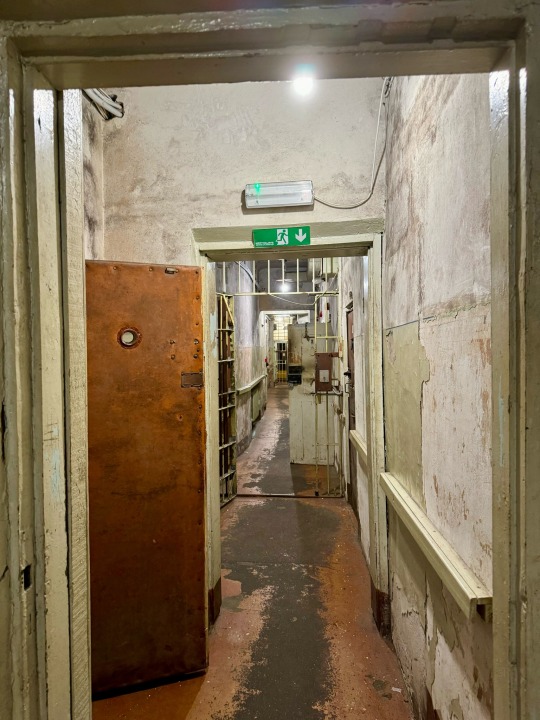
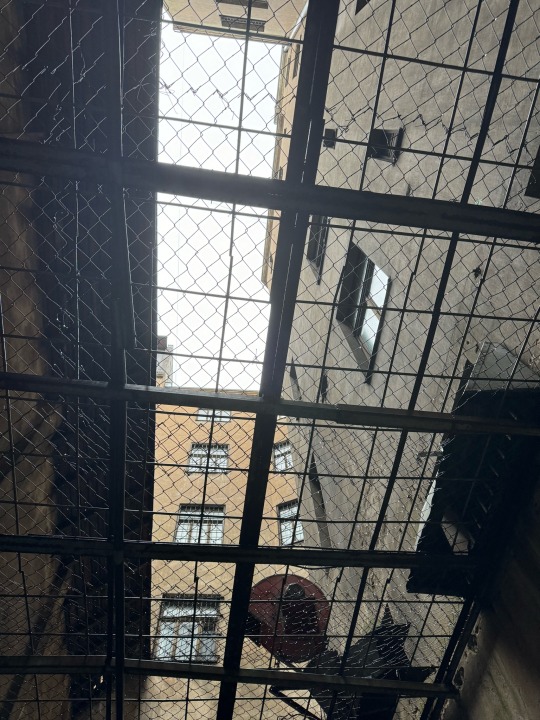

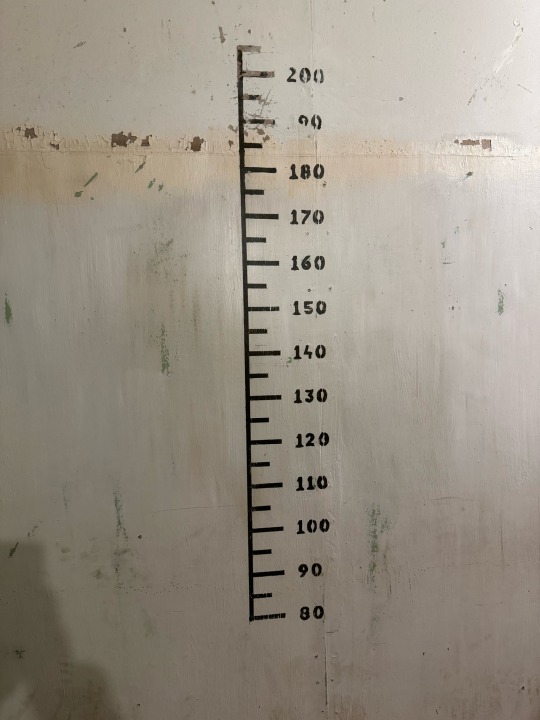


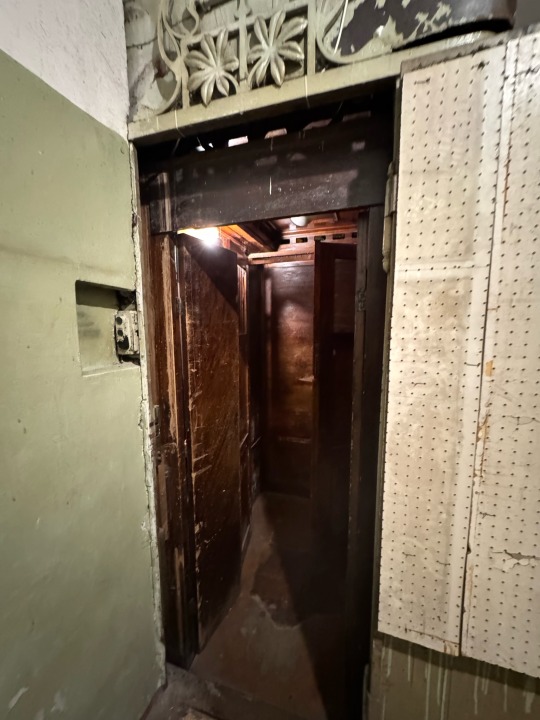

Stura Maja
The building, popularly known as the Corner House (Stura maja in Latvian), is located in the center of Riga. It is considered a historical monument of national importance and was the headquarters of the People's Commissariat of Internal Affairs (NKVD) from 1940 to 1941 and from 1944 to 1991, and of the KGB in Riga from 1954.
#crimes against humanity#soviet union#riga#latvia#nkvd#kgb#the last picture shows part of the room where people were executed#yellow is for bullet holes#red is for traces of dna#you can see the drain for blood in the corner
3 notes
·
View notes
Text


3 notes
·
View notes
Text
Genrikh Yagoda
Jewish Murderer | Chief of Soviet Secret Police (NKVD) | Stalinist Henchman
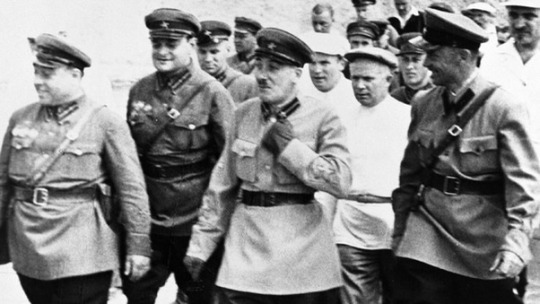
Genrikh Yagoda was a Soviet secret police chief and henchman of Joseph Stalin during the early part of the 20th century. He was responsible for overseeing some of the most notorious purges and terror campaigns of Stalin's reign, including the Great Purge in 1936-1938 and the dissolution of hundreds of kulaks, or peasant households. A loyal ally to Stalin, Yagoda was later accused of numerous crimes against humanity, including torture, mass executions, and forced labor programs that resulted in millions of deaths. Although he has been condemned by many over the past decades as one of the most ruthless figures in Soviet history, it is important to understand his place in this turbulent period and examine his motivations for following Stalin's directives.
Yagoda was born on October 7th 1891 in Gomel, Russia into a Jewish family. After completing school in 1910 he went on to study law at Moscow University before joining the Tsarist secret police force. When Vladimir Lenin came to power after the Bolshevik Revolution, Yagoda became an active member of Lenin's Cheka secret police organization where he rose through the ranks and eventually became deputy director in 1924. He served as Cheka Director from 1926 until 1934 when he replaced Vyacheslav Menzhinsky as head of the NKVD (People’s Commissariat for Internal Affairs). This position made him responsible for carrying out Stalin’s orders for purges and terror campaigns against anyone deemed an enemy or threat to Soviet rule.
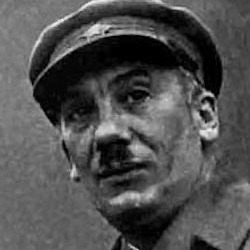
Under Yagoda’s directorship, thousands were arrested and imprisoned without trial or even access to legal representation during his tenure as NKVD chief. In addition to those arrested without trial or conviction, millions more were killed through mass executions or through forced labor camps known as gulags which are estimated to have caused between 1-3 million deaths alone since their foundation in 1930 under Yagoda’s direction (Rummel). The most notable period during Yagoda’s time as head of NKVD was known as The Great Purge which lasted from 1936 until 1938 which saw hundreds killed after being falsely accused of treason with little evidence to support these accusations while others were simply targeted due to their affiliation with certain political groups (Uldricks).
Yagoda’s loyalty to Stalin led him down a dark path that eventually cost him his life when he was accused by Lavrentiy Beria himself of participating in “anti-Soviet activities” alongside other top officials at a meeting held on February 19th 1938 (Uldricks). He was arrested three days later with many other leading officials at a special session held by Joseph Stalin himself and charged with “willful negligence," "corruption" and "espionage", despite having no credible evidence presented against him other than hearsay from Beria himself (Uldricks). Placed on trial without legal representation alongside other senior figures like Nikolai Bukharin who had also been falsely accused by Beria, Yagoda was found guilty on all charges on March 15th 1938 despite pleading not guilty throughout proceedings (Rummel). Sentenced to death by firing squad two days later alongside four others charged alongside him; Genrikh Yagoda became yet another example how those who chose not to follow Joseph Stalin too closely could end up paying for their loyalty with their lives ultimately ending an era that saw widespread fear amongst citizens under communist rule.
Sources:
Rummel R J (1985) Democide: Nazi Genocide And Mass Murder; Transaction Publishers; New Brunswick NJ
Uldricks T J(2007) The Great Terror: A Reassessment; Oxford University Press; Oxford UK
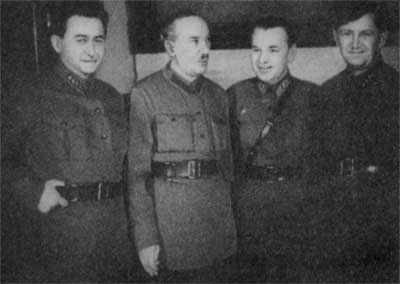
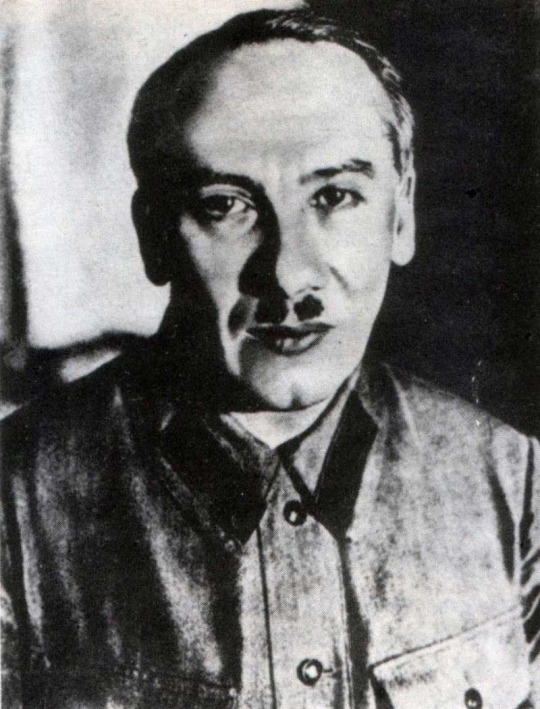
2 notes
·
View notes
Text
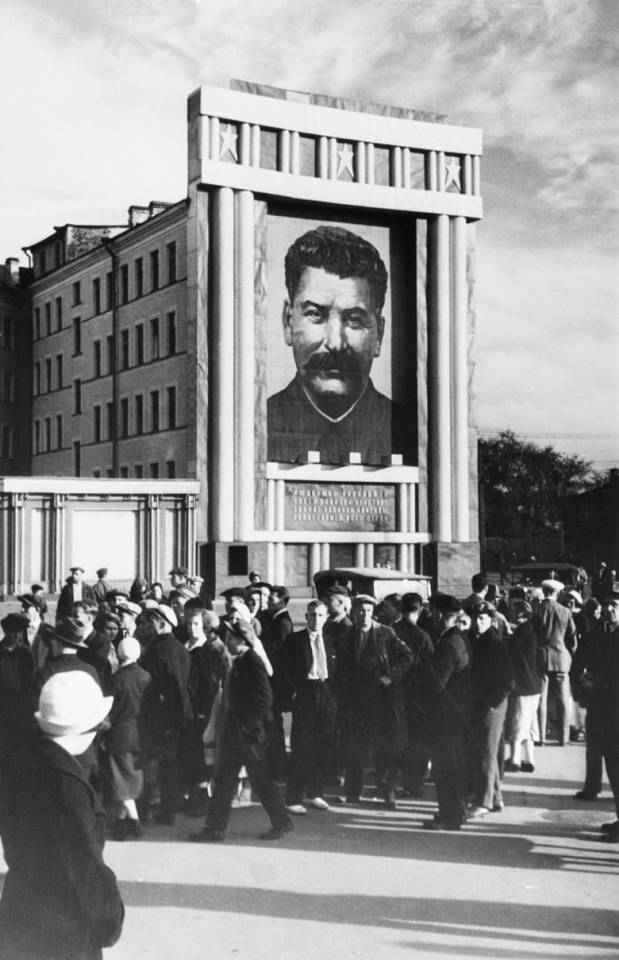
“Nearly all the accused had been savagely beaten. Bukharin was spared this but was visibly a broken man. From his prison cell he had written a note to Stalin: 'Koba, why is my death necessary for you?' But Stalin wanted blood. Constantly consulted by Chief Prosecutor Andrei Vyshinski and Vasili Ulrikh at the end of the court's working day, he ordered that the world's press should be convinced of the veracity of the confessions before sentences were passed. Many Western journalists were indeed hoodwinked. The verdict was announced on 13 March: nearly all the defendants were to be shot.
Two days later Stalin approved a further operation to purge 'anti-Soviet elements’. This time he wanted 57,200 people to be arrested across the USSR. Of these, he and Yezhov had agreed, fully 48,000 were to be rapidly tried by troiki and executed. Yezhov, by now practised at the management of such operations, attended to his duties with enthusiasm. Through spring, summer and autumn 1938 the carnage continued as the NKVD meat-grinder performed its grisly task on Stalin's behalf. Having put Yezhov's hand at the controls and ordered him to start the machine, Stalin could keep it running as long as it suited him.
Stalin never saw the Lubyanka cellars. He did not even glimpse the meat-grinder of the operations. Yezhov asked for and received vast resources for his work. He needed more than his executive officials in the NKVD to complete it. The Great Terror required stenographers, guards, executioners, cleaners, torturers, clerks, railwaymen, truck drivers and informers. Lorries marked ‘Meat' or 'Vegetables’ took victims out to rural districts such as Butovo near Moscow where killing fields had been prepared. Trains, often travelling through cities by night, transported Gulag prisoners to the Russian Far North, to Siberia or to Kazakhstan in wagons designed for cattle. The unfortunates were inadequately fed and watered on the journey, and the climate - bitterly cold in the winter and monstrously hot in summer - aggravated the torment. Stalin said he did not want the NKVD's detainees to be given holiday-home treatment. The small comforts that had been available to him in Novaya Uda, Narym, Solvychegodsk or even Kureika were systematically withheld. On arrival in the labour camps they were kept constantly hungry. Yerhov's dieticians had worked out the minimum calorie intake for them to carry out heavy work in timber felling, gold mining or building construction; but the corruption in the Gulag was so general that inmates rarely received their full rations - and Stalin made no recorded effort to discover what conditions were really like for them.
Such was the chaos of the Great Terror that despite Stalin's insistence that each victim should be formally processed by the troiki, the number of arrests and executions has not been ascertained with exactitude. Mayhem precluded such precision. But all the records, different as ther are about details, point in the same general direction. Altogether it would seem that a rough total of one and a half million people were seized by the NKVD in 1937-8. Only around two hundred thousand were eventually released. To be caught in the maw of the NKVD usually meant to face a terrible sentence. The troiki worked hard at their appalling task. The impression got around - or was allowed to get around - that Stalin used nearly all of the arrestees as forced labourers in the Gulag. In fact the NKVD was under instructions to deliver about half of its victims not to the new camps in Siberia or north Russia but to the execution pits outside most cities. Roughly three quarters of a million persons perished under a hail of bullets in that brief period of two years. The Great Terror had its ghastly logic.” - Robert Service, ‘Stalin: A Biography’ (2004) [p. 355 - 356]
#stalin#josef stalin#service#robert service#great terror#gulag#nkvd#soviet union#ussr#cccp#communism#russia#koba
6 notes
·
View notes
Text
Juliet-Stuart Poyntz. Free will? Abduction? Or murder?
When a private citizen suddenly disappears it could be for a number of reasons. Debts, trauma, fear or perhaps a simple desire to start over. If they can’t become somebody else, they can at least be somewhere else. Of course, there could be other reason. Perhaps they didn’t vanish by their own choosing, but somebody else’s. The still-unsolved vanishing of American Juliet-Stuart Poyntz is a…
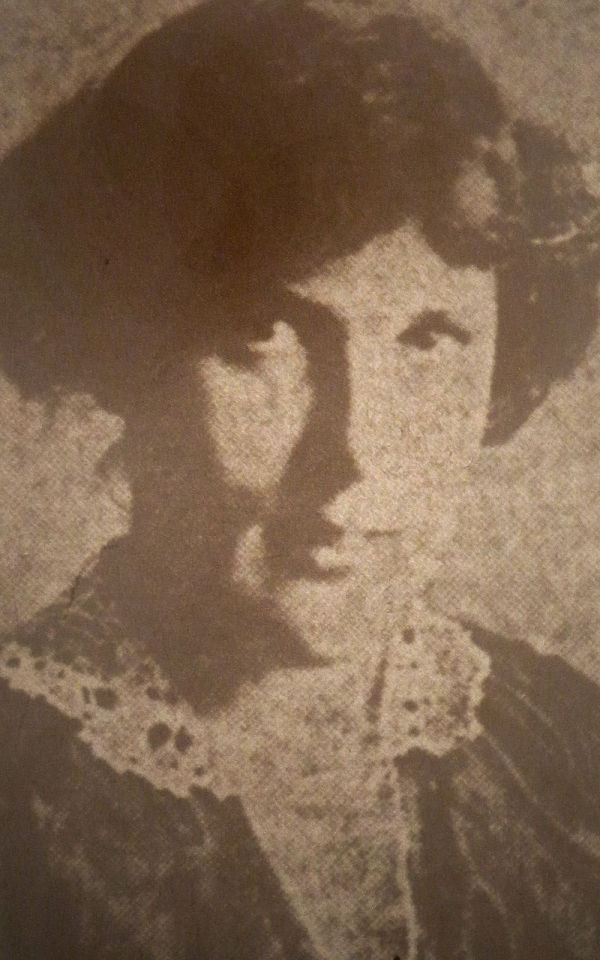
View On WordPress
#Anarchist#assassin#assassinated#assassination#Benjamin Gitlow#Carlo Tresca#Central Park#crime and punishment#Espionage#George Mink#History#Il Martello#Juliet Stuart Poyntz#murder#New York#NKVD#Soviet Union#Spanish Civil War#Stalin#treason#true crime#Westchester
0 notes
Note
What did you by Yezhov and other being like pulp characters?
Hmm.... Well, here's two examples, about Yagoda and Beria:

and


There's more, of course.
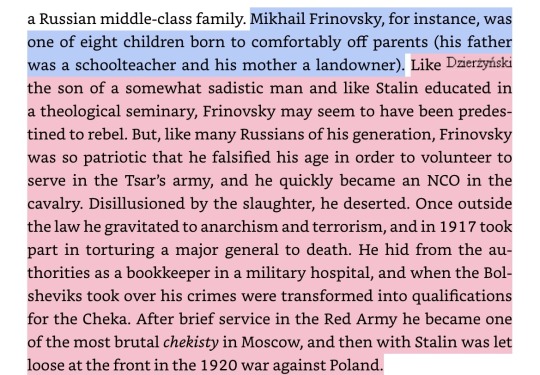
....


...
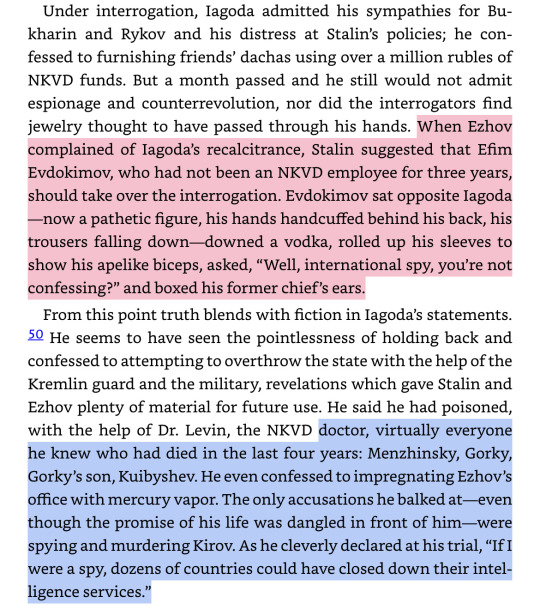
...

0 notes
Text
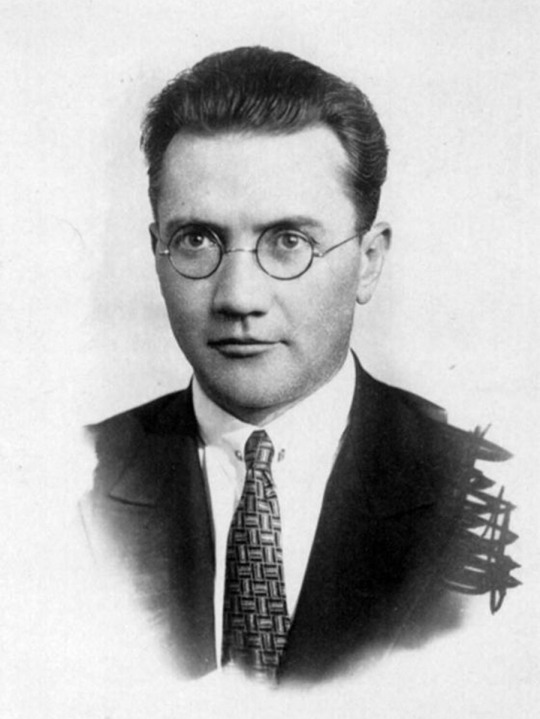
Stanisław Gołaszewski was an ethnic Polish citizen of the USSR who was working as a scientist in Tomsk when he was arrested and sentenced to death during the 1937-38 "Polish Operation" of the NKVD, which was the largest of Stalin's purges in the 1930s.
He was executed on 29th January 1938.
Gołaszewski was just one of 111,000 people murdered in Stalin's Soviet Union as a result of NKVD Order Number 00485, mostly for the heinous crime of doing nothing wrong while being Polish or merely having a Polish-sounding name.
#Stanisław Gołaszewski#RIP#history#poland#polska#soviet union#ussr#stalin#yehzov#nkvd#Polish Operation of the NKVD#1930s#1937#1938
2 notes
·
View notes
Text
Hablas de mí como si hubiera muerto
https://rebelion.org/hablas-de-mi-como-si-hubiera-muerto/
0 notes
Text
カティンの森事件:

1943年 - カティンの森事件: ドイツのラジオ放送が、ソ連領内カティンの森でポーランド将校4,000人の遺体を発見と報じる.
第二次世界大戦中にソビエト連邦のスモレンスク近郊に位置するカティンの森(ロシア語版)で約22,000人[1]又は25,000人[2]のポーランド軍将校、国境警備隊隊員、警官、一般官吏、聖職者が、ソビエト内務人民委員部(NKVD)によって虐殺された事件[3]。
0 notes
Text
Review: One Day in the Life of Ivan Denisovich - by Alexander Solzhenitsyn
Under the premiership of Nikita Khrushchev there was a post-Stalin easing of oppression emerging from the Kremlin and a Cold War ‘Victorian’ Ice Age thaw for writers allowed this remarkable, unique, little tale to unbelievably evade the censor and make it into the real world, even traversing the fixed barriers of the Iron Curtain. It was common, particularly during the purges of Uncle Joe, to…
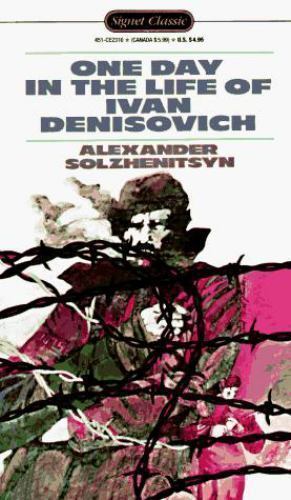
View On WordPress
#Alexander SOlzhenitsyn#BBC News#censor#censroship#cold war#communism#communist#concentration camp#culture#discipline#fiction#Gulag#human rights#Ivan Denisovich#justice#Khrushchev#Kremlin#mental hopsital#Nikita Khrushchev#NKVD#non-fiction#oppression#political prisoner#prison#prison literature#russia#russian#Russian author#Russian writer#sentence
0 notes
Text
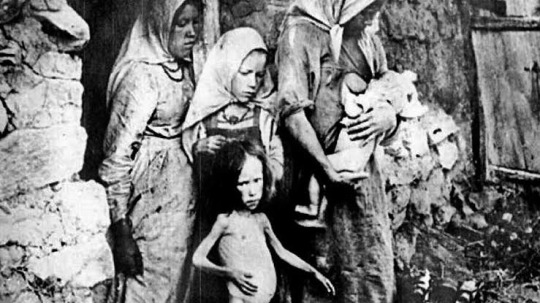
National Terror
Of those arrested by the NKVD, they were almost always men. Their arrests left the families in despair. Zeferyna Koszewicz saw her father for the last time as he was arrested at the factory gate and taken for interrogation. His last words to her were: “Listen to your mother!”
Yet most mothers were all but helpless. Throughout the Soviet Union and SSRs, wives and mothers would ritually visit the prison each day, bringing food and clean undergarments. Prison guards would give them the soiled undergarments in exchange.
Since these were the only sign that husbands still lived, they were received with joy. One day the undergarments would be soiled with blood. And the next day there would be no undergarments, and then there would be no husband.
#quote#book#blood lands#the great terror#soviet union and ssr’s#soviet policies#men and husbands#signs of life#undergarments#nkvd#stalinism#marxism broken
0 notes